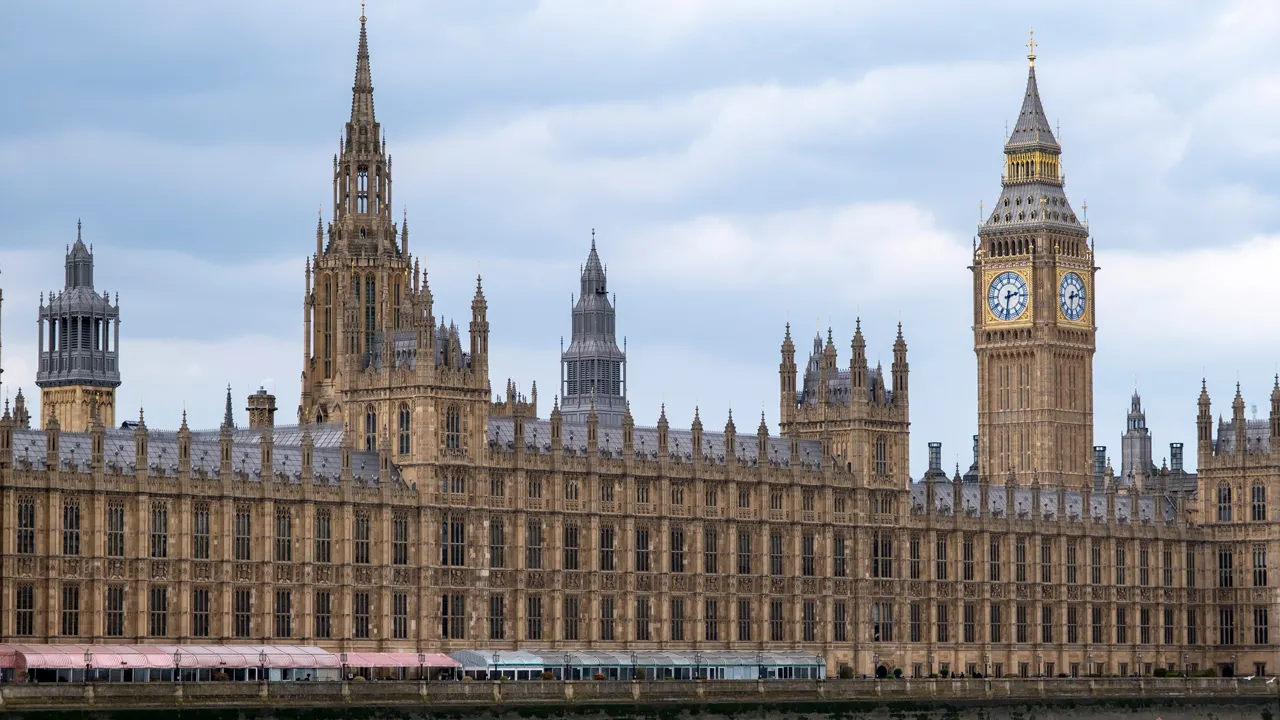LONDON – Britain is facing a free speech crisis as the new left-wing government, overzealous police and courts crackdown on freedom of expression.
Prime Minister Keir Starmer, the leader of the ruling Labour Party, and his government of barely two months have been accused of rolling back free speech protections on safety grounds and failing to root out selective enforcement of laws.
“Every Brit fundamentally has the right to free speech, but for several years now, we’ve seen a growing trend,” Lois McLatchie Miller, Senior Legal Communications Officer for Alliance Defending Freedom (ADF) U.K., told Fox News Digital. “It’s only now becoming widely recognized that certain groups, depending on their beliefs, seem to have their free speech curtailed much more easily than others with different viewpoints.”
NEW ONLINE ‘MISINFORMATION’ BILL SLAMMED AS ‘BIGGEST ATTACK’ ON FREEDOMS IN AUSTRALIA
Police officers face protesters during an anti-immigration demonstration outside the Holiday Inn Express in Rotherham, England, Sunday Aug. 4, 2024. (Danny Lawson/PA via AP) (Danny Lawson/PA via AP)
Widespreadriots in the streets of England last month and a heavy-handed approach in response to the social unrest reignited the debate about free speech.
The U.K. has been grappling with harsh policing of online speech for years. In 2019, ex-police officer Harry Miller was investigated over social media posts deemed transphobic for questioning whether transgender women were real women. Miller’s posts were recorded by the police as a “non-crime hate incident,” prompting him to challenge the designation in court. In 2020, the U.K. court ruled in Miller’s favor but stopped short of changing the guidelines that allow police to pursue people over comments made online.
During a speech to parliament, Reform Party leader Nigel Farage complained of the double standards in applying the law evenly. Farage wrote on X “Establishment MPs can heckle me all they like, but the British people are angry that we are living through a two-tier policing and justice system.”
Last month, the government issued a direct reminder of such laws and warned its citizens to be mindful of posting content deemed offensive and threatening with imprisonment. The Crown Prosecution Service posted a warning to social media platform X, which was amplified by the government’s official social media accounts, warning citizens, “Think before you post!”
Britain’s Prime Minister Keir Starmer leaves 10 Downing Street to attend the weekly Prime Ministers’ Questions session in parliament in London, Wednesday, July 24, 2024. (AP Photo/Frank Augstein) (AP Photo/Frank Augstein)
“Content that incites violence or hatred isn’t just harmful – it can be illegal,” the agency wrote. “The CPS takes online violence seriously and will prosecute when the legal test is met. Remind those close to you to share responsibly or face the consequences.” The post added: “The British government is cracking down on people who share social media posts about the U.K. riots that it judges are ‘likely to start racial hatred.'”
The government simultaneously began working on measures to force social media companies to suppress perceived “fake news” and legal content deemed harmful, to avoid fueling social unrest. The new measures would expand the scope of Britain’s Online Safety Act by targeting and making social media companies liable for “legal but harmful” content.
UK LOOKS TO TREAT MISOGYNY AS EXTREMIST VIOLENCE, RAISING FREE SPEECH CRACKDOWN CONCERNS
Anti-Israel protesters gather in central London for a march to the Israeli Embassy in London, United Kingdom on September 7, 2024. (Wiktor Szymanowicz/Future Publishing via Getty Images)
London Mayor Sadiq Khan encouraged the Stammer government to swiftly implement changes to the online safety law, saying that currently, “it’s not fit for purpose.”
“I think very swiftly the government has realized there needs to be amendments to the Online Safety Act,” Khan said in aninterview with the Guardian. “I think what the government should do very quickly is check if it is fit for purpose. I think it’s not fit for purpose.”
But concerns over free speech in the U.K. extend beyond online, with double standards applied to different viewpoints and political protests.
Last weekend, two pro-Israel counter-protesters, Mark Birbeck and Niyak Ghorbani, carrying a “Hamas is terrorist” sign, were arrested during the pro-Hamas march in London on suspicion of breach of peace. The counter-protesters’ presence allegedly led to the march being paused, and they were arrested following a struggle with police officers.
Ghorbani is a well-known anti-Hamas Iranian dissident whom London’s Metropolitan Police tried to ban from attending future anti-Israel protests as part of his bail conditions after he was arrested for opposing the protests. A court rebuked the force and ruled in April that such bail conditions were neither proportionate nor necessary. The moniker ‘Two-tier Kier’ is how some on social media have responded to the new prime minister’s policies.
Dia Moodley, a Christian preacher in the UK, fought a legal battle against the police after authorities said he could no longer comment on other religions while he gave street sermons. (Dia Moodley)
“On one hand, we see groups like environmental protesters, such as Stop Oil activists, or pro-Palestinian, and even in some cases, pro-Hamas protesters being given a wide berth to express their beliefs, sometimes using very violent language,” Lois said. “Yet, when we consider different types of protests, for example, Christians going out to pray near places of worship, they often face much stricter restrictions.”
For example, Dia Moodley, a Christian pastor who occasionally engages in street evangelism, was forced to sue the local police after the force forbade him from “passing comments on any other religion or comparing them to Christianity” and “passing comments on beliefs held by Atheists or those who believe in evolution.” Moodley won in court earlier this year, and the police admitted that the restrictions on free speech imposed on Moodley were “disproportionate.”
Adam Smith-Connor, a Christian military veteran, meanwhile, is set to appear in court next week after being fined and criminally prosecuted over praying silently near an abortion facility. Local authorities alleged that Smith-Connor’s silent prayer violated the so-called “buffer zone,” a designated area where individuals are allowed to express approval or disapproval of abortion.
OCTOBER 16: Hundreds attend a protest called by the National Jewish Assembly, The Camapaign Against Antisemitsim and the UK Lawyers for Israel at the BBC Broadcasting House on October 16, 2023, in London, England. The National Jewish Assembly is protesting at the BBC’s refusal to label Hamas terrorists and comes after the militant group’s recent attacks on Israel. Hamas was prescribed as a terrorist organization by the UK in March 2021. (Photo by Guy Smallman/Getty Images) (Getty Images)
“Silent prayer is not, and can never be, a crime. Yet, the prosecution of Adam Smith-Connor – who served in Afghanistan to uphold fundamental freedoms for everyone – shows an authoritarian move towards ‘thought-policing’ in the U.K. This isn’t 1984, but 2024. And yet, the determination of the state to clamp down hard on even silent Christian beliefs – while protecting the free expression of others with different views – is clearly exposed,” said McLatchie Miller.
Yet, there is a growing backlash against the government’s anti-free speech stance, particularly the decision to pause the implementation and potentially scrap entirely the free speech law in higher education over safety concerns.
Over 600 academics and intellectuals, including seven Nobel laureates, signed a letter urging the government to reconsider the decision to shelve the law, the Times of Londonreported. The law was a flagship policy passed by the previous Conservative government to protect students’ and academics’ free speech rights on campus.
“The decision to halt [the act] appears to reflect the view, widespread among opponents, that there is no ‘free speech problem’ in U.K. universities. Nothing could be more false. Hundreds of academics and students have been hounded, censured, silenced or even sacked over the last 20 years for the expression of legal opinions,” the letter read.
Lukas Mikelionis is a reporter for FoxNews.com



